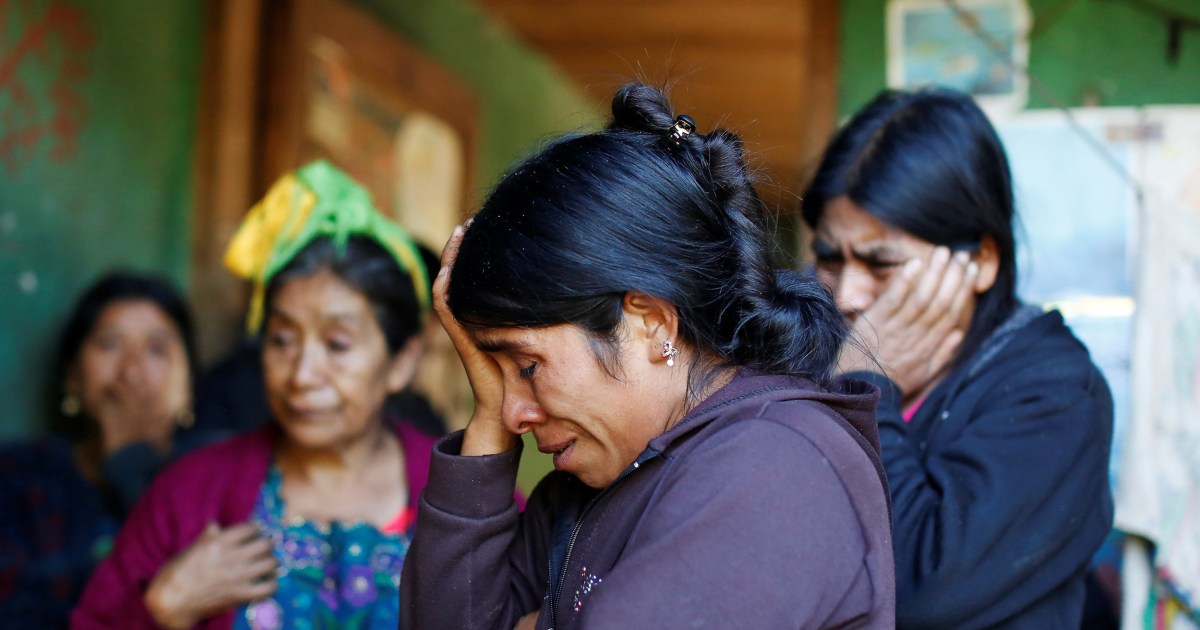As you know the discussion was about children since the Trump administration began separating families.
Why Do YOU want children to go to jail .... there parents are being prosecuted for Criminal Entry into the US
https://bipartisanpolicy.org/blog/why-are-families-being-separated-at-the-border-an-explainer/
Why does this policy result in children being separated from their parents?
The use of criminal charges against parents caught crossing the border triggers a legal situation that necessitates separating children, while the use of civil immigration detention and removal does not require this to occur. When adults are detained and prosecuted in the criminal justice system for immigration offenses, their children cannot, by law, be housed with them in criminal jails, so the family unit is separated. The children are placed with the Department of Health and Human Services in shelters until they can be released to a family member, guardian, or foster family in the United States.
Previous administrations used family detention facilities, allowing the whole family to stay together while awaiting their deportation case in immigration court, or alternatives to detention, which required families to be tracked but released from custody to await their court date. Some children may have been separated from the adults they entered with, in cases where the family relationship could not be established, child trafficking was suspected, or there were not sufficient family detention facilities available. Both the Obama and Trump administrations have tried to establish more capacity to detain families and children, rather than releasing them until their hearing date. However, the zero-tolerance policy is the first time that a policy resulting in separation is being applied across the board.
Why did the administration adopt this policy of separating families at the border?
In March 2017, then-DHS Secretary John Kelly
cited the deterrent value of family separation as a rationale for the policy. The rationale is that if immigrants believed that they would be separated from their child if they were caught, they might be less likely to illegally enter the country. DHS has also
pointed to intelligence suggesting that unrelated children were often smuggled with migrants to avoid detention, meaning the zero-tolerance policy prevents those offenders from abusing the system. President Trump has tweeted that there are laws that require this separation. While there is no law that specifically requires separation (other than that children cannot be housed in criminal jails with adults), the president seems to be referring to the laws prohibiting extended detention of children who cross the border illegally, which the administration believes would allow them to be deported more quickly.
What’s Really Happening When Asylum-Seeking Families Are Separated?
AC: So the idea of zero tolerance under the stated policy is that we don’t care why you’re afraid. We don’t care if it’s religion, political, gangs, anything. For all asylum seekers, you are going to be put in jail, in a detention center, and you’re going to have your children taken away from you. That’s the policy. They’re not 100 percent able to implement that because of a lot of reasons, including just having enough judges on the border. And bed space. There’s a big logistical problem because this is a new policy. So the way they get to that policy of taking the kids away and keeping the adults in detention centers and the kids in a different federal facility is based on the legal rationale that we’re going to convict you, and since we’re going to convict you, you’re going to be in the custody of the U.S. Marshals, and when that happens, we’re taking your kid away. So they’re not able to convict everybody of illegal entry right now just because there aren’t enough judges on the border right now to hear the number of cases that come over, and then they say if you have religious persecution or political persecution or persecution on something that our asylum definition recognizes, you can fight that case behind bars at an immigration detention center. And those cases take two, three, four, five, six months. And what happens to your child isn’t really our concern.
That is, you have made the choice to bring your child over illegally. And this is what’s going to happen.
TM: Even if they crossed at a legal entry point?
AC: Very few people come to the bridge. Border Patrol is saying the bridge is closed. When I was last out in McAllen, people were stacked on the bridge, sleeping there for three, four, ten nights. They’ve now cleared those individuals from sleeping on the bridge, but there are hundreds of accounts of asylum seekers, when they go to the bridge, who are told, “I’m sorry, we’re full today. We can’t process your case.”
So the families go illegally on a raft—I don’t want to say illegally; they cross without a visa on a raft. Many of them then look for Border Patrol to turn themselves in, because they know they’re going to ask for asylum. And under this government theory—you know, in the past, we’ve had international treaties, right? Statutes which codified the right of asylum seekers to ask for asylum. Right? Article 31 of the Refugee Convention clearly says that it is improper for any state to use criminal laws that could deter asylum seekers as long as that asylum seeker is asking for asylum within a reasonable amount of time. But our administration is kind of ignoring this longstanding international and national jurisprudence of basic beliefs to make this distinction that, if you come to a bridge, we’re not going to prosecute you, but if you come over the river and then find immigration or are caught by immigration, we’re prosecuting you.



